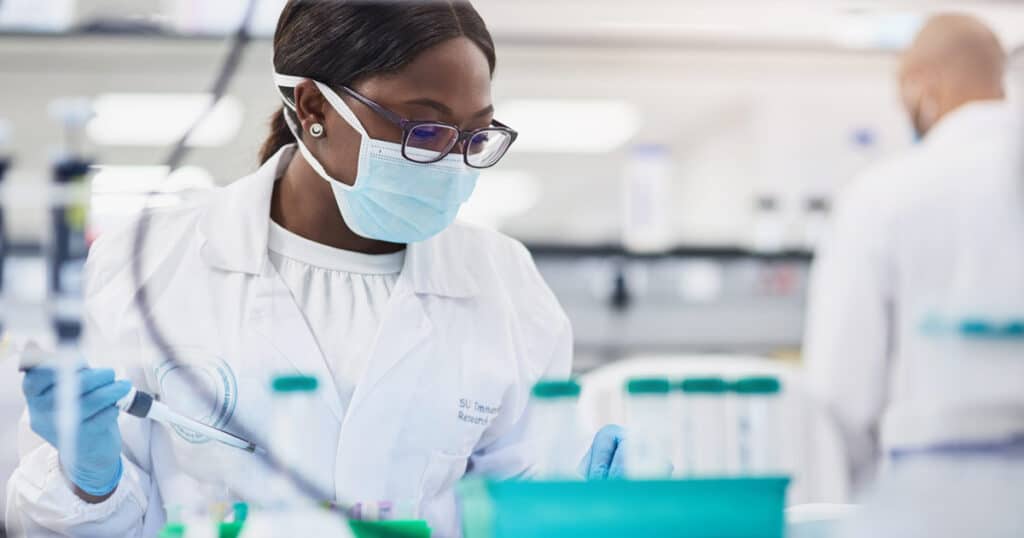3 Qualities that Helped the Leader of the Team that Developed the COVID Vaccine

Photo credit: iStockphoto.com (Adene Sanchez)
Of the nearly 8 billion people in our world, relatively few will do something that changes the course of history. Even fewer will do so in a way that saves millions of lives. And fewer still will break barriers along the way – becoming role models to a generation of girls passionate about science and technology.
Dr. Kizzmekia Corbett is one of those rare people.
She led the team that created the Moderna COVID-19 vaccine in just 66 days. But Dr. Corbett is not only a brilliant scientist. She is also a brilliant communicator. And she is willing to do what it takes, having appeared at a Sesame Street/CNN Town Hall – right there beside Elmo, Bert, and Ernie – to get her message out.
In naming her one of the heroes of the year, Time Magazine called Dr. Corbett “a miracle worker.” She is also a Harvard University professor and advocate for diversity in STEM. And she is proof that no woman who makes history should ever again be a hidden figure.
So what personal qualities does she think she brings to the leadership role?
Organization
“I am the second-oldest daughter of seven children from a small town in Hillsborough, North Carolina,” she said, “and my sister likes to say that I think of myself as the family’s manager because I tend to be very organized.”
Delegation
“I also tend to be able to delegate in a way that pulls on the strengths of any one person. This is something that I got out of therapy a few years back when I remembered one of my sisters and I were having a fight. I kept gloating about everything I brought to the table for the family regarding celebrating holidays and how I organized everything.
“My therapist reminded me that even if it wasn’t something that I necessarily felt was important, there was a space for every single person in my family in those moments. And then I remembered that particular sister, for example, was always the one you could count on to ensure people were laughing.
“So I bring that skillset to leadership, remembering that everyone on the team has a purpose for being there. And if we can just play on each person’s strengths and personalities, it does help for the betterment of everything we’re trying to do as a team.”
Confidence
“I don’t necessarily know if I feel like I’ve earned my confidence, but I know a couple of things, and one of them is that I’m a good scientist. So I think that having that knowledge and having it be reiterated to me by people who I admire in various spaces helps me to exude a level of perceived confidence.”
Corbett added that she has two therapists – because she is “so, so, so” into being self-aware, self-aligned, and healthy mentally.
“I mean, a million things are going on – especially for people who transverse spaces that no one else has ever before,” she added. “It will be difficult to find your footing because no footprints exist. So I think the most important thing is to remember: If not you, then who?”
Saying No
Corbett said she has also recently learned to say no more often – without explanation.
“People will ask for an explanation, and then I just repeat that I said no. I think that helps free up space for me to do the things that matter to me and remind others and myself that I can structure my time in the way I want to.”

Dr. Kizzmekia Corbett spoke with NPR’s Audie Cornish at the 2022 Pennsylvania Conference for Women. This article is based on their conversation. It has been lightly edited for clarity and brevity.